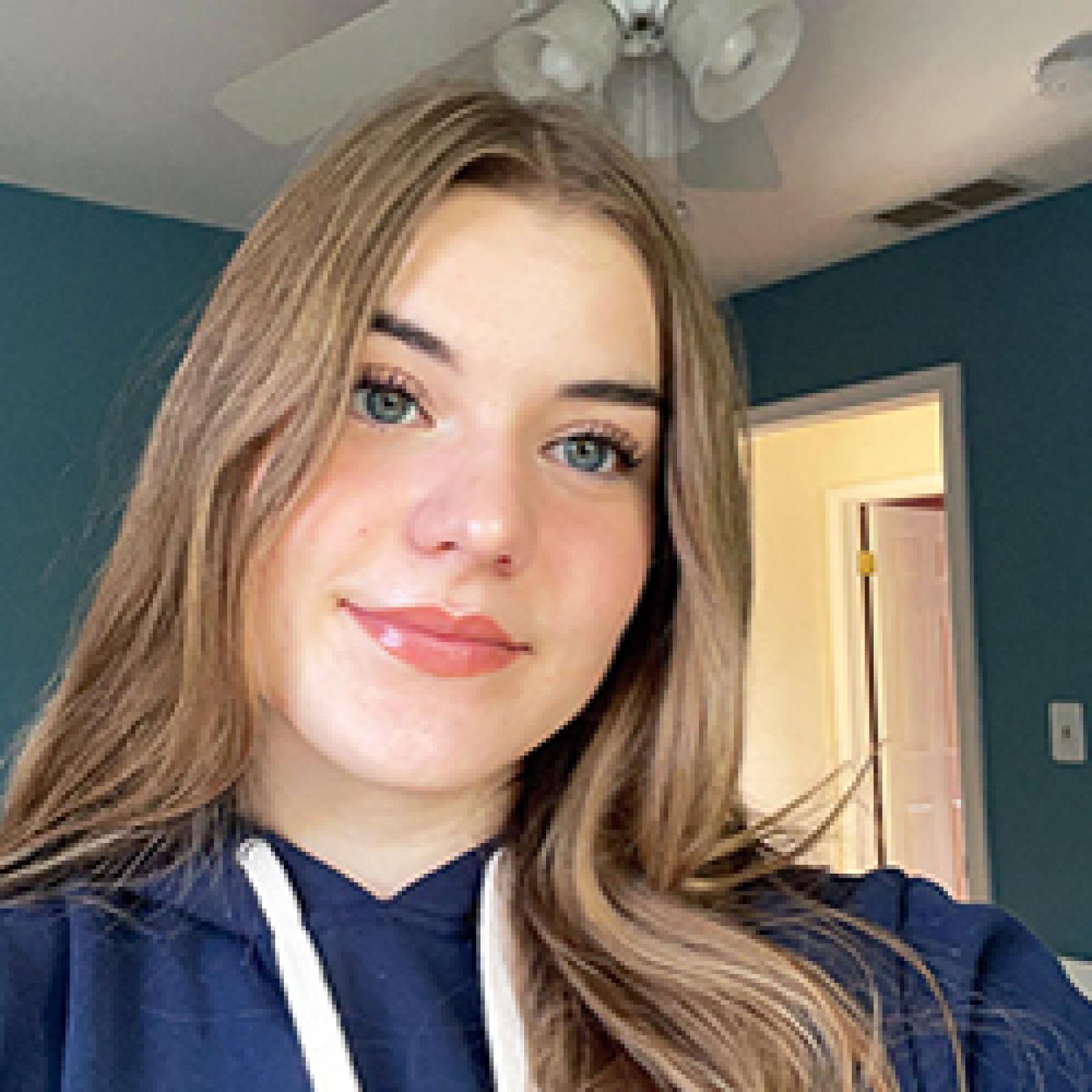Professor Godfrey’s research interests include how healthcare systems affect our health, mental health, and overall well-being.
Explore the science of human behavior with a BA in Psychology from Pace University. This STEM-designated program develops your skills in research, analysis, and critical thinking—tools that open doors in fields like mental health, education, business, law, and healthcare.

New York City
Westchester
120
Fall, Spring
Yes
Yes
Pace's BA in Psychology blends scientific research with hands-on experience, giving you a well-rounded understanding of human thought, behavior, and development. The 47-credit major enables you to shape your academic path, whether you’re interested in clinical psychology, cognitive science, child development, or organizational behavior.
As a BA psych major, you’ll gain access to research labs, community partnerships, and internships that connect theory with practice. Collaborate with faculty on projects in trauma, cognitive development, social behavior, or digital media, or apply your skills through internships at hospitals, schools, nonprofits, and corporate organizations. Annual psychology conferences, student research showcases, and membership in Psi Chi, the International Honor Society in Psychology, will further enrich your experience.
Graduates of Pace’s BA in Psychology program enter diverse fields, from education to human resources, marketing, and healthcare, or extend their studies to pursue advanced degrees. With a growing demand for psychology professionals across sectors, this degree offers a solid foundation for both immediate employment and future academic pursuits.
best clinical, counseling and applied psychology bachelor’s degree colleges for veterans in New York (Source: CollegeFactual.com)
for humanities majors based on return on tuition investment (Source: PayScale.com)
of 2023 bachelor degree graduates are employed, in continuing education or service (Source: Pace University Career Services)
Develop a strong foundation for your career through courses in experimental psychology, statistics, physiological psychology, learning theory, social psychology, and the history of psychology.
As a psychology student at Pace University, you’ll collaborate closely with our faculty—experienced researchers, scholars, and practitioners—who encourage hands-on involvement and real-world application of your work.
On the Westchester Campus, the Trauma, Social Processes, and Resilience Lab conducts original research on how people cope with and successfully adapt to significant life stressors. Also, the Interpersonal Behavior Lab as well as the Social, Health, Relational, Positive Psychology Lab provides students with the opportunity to develop a better understanding of positive social relationships.
In New York City, the Mind, Movement, Interaction and Development Research Group and the Parent-Child Institute foster research on parental and child relationships. Other research groups include the Dyson College Center for Global Psychology, Pace Institute for Creativity, Center for Urban Health and Education Research, Social Justice and Health Equity Psychology Lab, and the Digital Media and Psychology Lab.
Annual co-curricular experiences include the Pace University Psychology Conference, sponsored by the New York City and Pleasantville Departments of Psychology, and the student-led Pace Charter of Psi Chi, the International Honor Society in Psychology Both Psychology Departments and Psi Chi sponsor various activities and events, including resume-building workshops, professional meetings, and colloquia.
A degree in psychology is excellent preparation for work in a variety of fields, including clinical/counseling, education, health care, law, management, human resources, research, sports psychology, and advocacy.
As a Pace student, you’ll have the opportunity to connect with our robust career services team to develop a career plan that best fits your goals.
*Advanced degree required

—Agathe Brudi '25, Psychology, BA student
Professor Godfrey’s research interests include how healthcare systems affect our health, mental health, and overall well-being.
Professor Gosnell’s research interests include how individuals navigate, interpret, and manage personal and relational needs in good times and bad.
Professor Mancini's research interests include adaptive stress responses and changes in social behavior, including other-focused emotions, reductions in self-focus, and feelings of awe.
Ready to take charge of your future? Pace is with you every step of the way, providing a world class education and the skills your industry will be looking for far into the future.
November 1: Early Decision
November 15: Early Action I
December 1: Early Action II
February 15: Regular Decision
Explore required documents and admission decision dates for first-year, transfer, and international students.
Ready to apply? Begin your application process.
Understanding the value of a degree is essential, especially in terms of return on investment (ROI). According to The Georgetown University Center on Education and the Workforce, Pace University is in the top 6% of U.S. colleges that provide the best return on tuition investment.
For the 2024–2025 academic year, full-time undergraduate tuition is $51,382. However, many students pay significantly less due to our generous merit scholarships, which offer up to $33,000 annually, as well as need-based scholarships, grants, on-campus employment opportunities, and loans. Pace is more affordable than you think. Financial assistance can come from many places, including scholarships, grants, on-campus employment, and loans.
Merit Scholarship Estimator
Estimate your merit scholarship eligibility based on your academic achievements to see how much merit aid you may receive.
Net Price Calculator
Use our Net Price Calculator to estimate your annual education costs and financial aid package.
Connect with our dedicated admission counselors who are here to support you every step of the way. Schedule a one-on-one appointment to discuss your goals, application questions, and any other information you need to make an informed decision about your future at Pace.
The type of degree you choose depends on whether you want a broader liberal arts education (BA) or a more specialized, STEM-focused education (BS).
A BA in Psychology focuses primarily on the social, cultural, and humanistic aspects of psychology, offering more electives in the humanities and social sciences. It's an ideal choice for students interested in careers in counseling, education, or social work.
A BS in Psychology emphasizes the scientific and technical aspects of the field, and includes more coursework in math, biology, and research methods. A BS prepares students for careers in research, medicine, or neuroscience.
Pursuing a BA in psychology can be a valuable investment for anyone seeking versatile career opportunities. This degree offers strong foundational skills in research, communication, and critical thinking, applicable in various fields such as counseling, human resources, and social services. While further education may be needed for specialized roles, the broad applicability of a psychology degree makes it a worthwhile consideration for anyone interested in human behavior and mental health.
Choosing between a BA and a BS in psychology depends on your career goals. A BA emphasizes a broader liberal arts education, offering flexibility for careers in counseling, education, or social services. A BS focuses more on science and research, preparing students for graduate studies in psychology or related scientific fields. If you’re interested in research or technical roles, a BS may be better, while a BA suits those seeking diverse career paths.
A BA in psychology can be a suitable major if you’re interested in medical school, if it is paired with the required science courses. Psychology provides valuable insights into human behavior, mental health, and communication—skills essential for a medical career. Ensure that the program allows flexibility to complete medical school prerequisites like biology, chemistry, and physics. Consult with an academic advisor to develop a balanced plan of study.
Undergraduate Admission
New York City: (212) 346-1323
Westchester: (914) 773-3746
Email: undergradadmission@pace.edu
Sally Dickerson, PhD
Professor and Chair | NYC Campus
Email: sdickerson@pace.edu
Paul Griffin, PhD
Associate Professor and Chair | Pleasantville Campus
Email: pgriffin@pace.edu